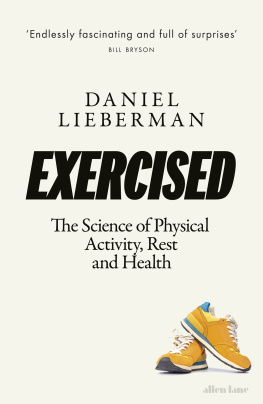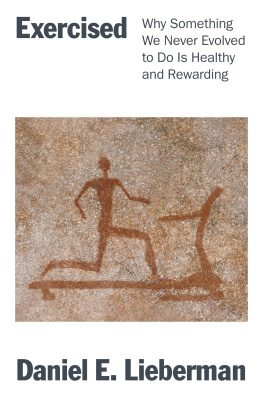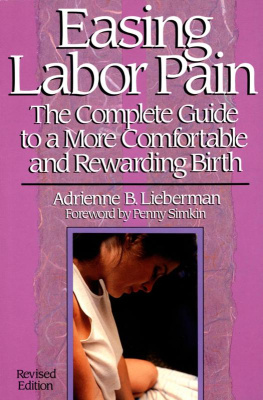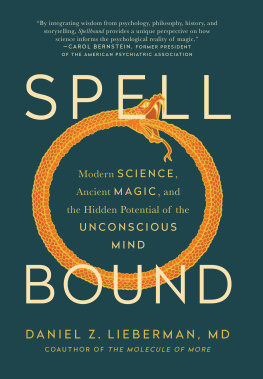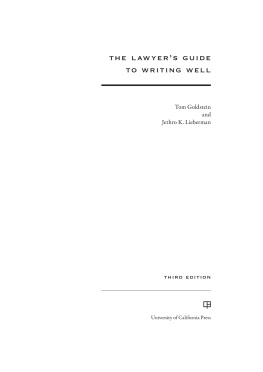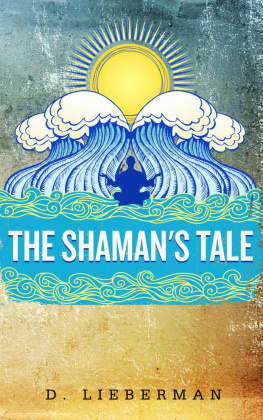Daniel Lieberman - Exercised
Here you can read online Daniel Lieberman - Exercised full text of the book (entire story) in english for free. Download pdf and epub, get meaning, cover and reviews about this ebook. year: 2020, publisher: Penguin Books Ltd, genre: Romance novel. Description of the work, (preface) as well as reviews are available. Best literature library LitArk.com created for fans of good reading and offers a wide selection of genres:
Romance novel
Science fiction
Adventure
Detective
Science
History
Home and family
Prose
Art
Politics
Computer
Non-fiction
Religion
Business
Children
Humor
Choose a favorite category and find really read worthwhile books. Enjoy immersion in the world of imagination, feel the emotions of the characters or learn something new for yourself, make an fascinating discovery.
- Book:Exercised
- Author:
- Publisher:Penguin Books Ltd
- Genre:
- Year:2020
- Rating:5 / 5
- Favourites:Add to favourites
- Your mark:
- 100
- 1
- 2
- 3
- 4
- 5
Exercised: summary, description and annotation
We offer to read an annotation, description, summary or preface (depends on what the author of the book "Exercised" wrote himself). If you haven't found the necessary information about the book — write in the comments, we will try to find it.
Exercised — read online for free the complete book (whole text) full work
Below is the text of the book, divided by pages. System saving the place of the last page read, allows you to conveniently read the book "Exercised" online for free, without having to search again every time where you left off. Put a bookmark, and you can go to the page where you finished reading at any time.
Font size:
Interval:
Bookmark:

To Eleanor
The Story of the Human Body:
Evolution, Health, and Disease
The Evolution of the Human Head
Three Useful Definitions
Physical activity (noun): any bodily movement produced by skeletal muscles that expends energy
Exercise (noun): voluntary physical activity that is planned, structured, repetitive, and undertaken to sustain or improve health and fitness
Exercised (adjective): to be vexed, anxious, worried, harassed
PENGUIN BOOKS
UK | USA | Canada | Ireland | Australia
India | New Zealand | South Africa
Penguin Books is part of the Penguin Random House group of companies whose addresses can be found at global.penguinrandomhouse.com.

First published by Allen Lane 2020
First published in the United States of America by Pantheon Books, a division of Penguin Random House LLC, New York 2020
Text copyright Daniel E. Lieberman
Extract from Lord of the Flies copyright William Golding, courtesy of Faber and Faber Ltd
The moral right of the author has been asserted
Cover photograph: Getty Images
ISBN: 978-0-241-30928-5
This ebook is copyright material and must not be copied, reproduced, transferred, distributed, leased, licensed or publicly performed or used in any way except as specifically permitted in writing by the publishers, as allowed under the terms and conditions under which it was purchased or as strictly permitted by applicable copyright law. Any unauthorized distribution or use of this text may be a direct infringement of the authors and publishers rights and those responsible may be liable in law accordingly.

In June 2017, as I was beginning this book, I flew to Kenya, bought a treadmill, and transported it in a Land Cruiser to a remote place called Pemja, a community more than seven thousand feet above sea level in the western part of the country. Pemja lies at the edge of a verdant region of rolling hills and valleys dotted with giant granite outcrops. Scattered everywhere are small fields and simple homesteads, typically one-room houses made from mud and dung and roofed with thatch or tin. Pemja is beautiful but poor, even by Kenyan standards, and far off the beaten path. To drive there from Eldoret, the nearest city, which is just fifty miles away, takes nearly a day on roads that become increasingly treacherous the closer one gets to Pemja. On a good day, the journey requires navigating precipitous, twisting dirt lanes traversed by gullies littered with boulders and other obstacles. When it rains, the route becomes a steep, sticky river of volcanic mud.
Despite the horrendous roads, I have made this trip with my students and Kenyan colleagues nearly every year for the last decade to study how human bodies here are changing as the world rapidly modernizes. The people of Pemja are subsistence farmers who live much as their ancestors did for generations with barely any access to paved roads, electricity, and running water. Most Pemjans lack sufficient means to buy shoes, mattresses, medicine, chairs, and other things I take for granted, and I find it deeply moving to observe how hard they work without assistance from machines to survive and improve their lives, especially the childrens. By comparing them with people from the same Kalenjin ethnic group who live in the nearby city of Eldoret, we can study how our bodies change when we sit for much of the day in office jobs and no longer sustain ourselves with daily physical labor, go barefoot, and sit or squat on the ground.
Hence the treadmill. Our plan was to use it to study how efficiently women in this region walk while carrying heavy loads of water, food, and firewood on their heads. But the treadmill was an illuminating mistake. After we invited the women to stand on the machine and the belt started to move, they walked self-consciously, hesitantly, awkwardly. You, too, probably walked strangely the first time you got on one of these bizarre, noisy contraptions that force you to work to get nowhere. Although the womens treadmill-walking skills improved slightly with practice, we realized that to measure how they normally walked with and without loads, we had to abandon the treadmill and ask them to walk on solid ground.
As I grumbled about how much money, time, and effort we had wasted getting a treadmill to Pemja, it struck me how these machines encapsulate the main theme of this book: we never evolved to exercise.
What do I mean by that? Well, exercise today is most commonly defined as voluntary physical activity undertaken for the sake of health and fitness. But as such it is a recent phenomenon. Our not-too-distant ancestors who were hunter-gatherers and farmers had to be physically active for hours each day to get enough food, and while they sometimes played or danced for fun or social reasons, no one ever ran or walked several miles just for health. Even the salubrious meaning of the word exercise is recent. Adapted from the Latin verb exerceo (to work, train, or practice), the English word exercise was first used in the Middle Ages to connote arduous labor like plowing a field. While the word has long been used to denote practicing or training to improve skills or health, to be exercised also means to be harassed, vexed, or worried about something.
Like the modern concept of exercising for the sake of health, treadmills are recent inventions whose origins had nothing to do with health and fitness. Treadmill-like devices were first used by the Romans to turn winches and lift heavy objects, and then modified in 1818 by the Victorian inventor William Cubitt to punish prisoners and prevent idleness. For more than a century, English convicts (among them Oscar Wilde) were condemned to trudge for hours a day on enormous steplike treadmills.
Opinions differ on whether treadmills are still used for punishment, but they illustrate the odd nature of exercise in the modern, industrialized world. Without seeming like a madman or an idiot, how would I explain to a hunter-gatherer, a farmer in Pemja, or even my great-great-great-grandparents that I spend most of my days sitting in chairs and then compensate for my idleness by paying money to go to a gym to make myself sweaty, tired, and uncomfortable on a machine that forces me to struggle to stay in the same place?
Beyond the absurdity of treadmills, our distant ancestors would also be perplexed by the way exercise has become commercialized, industrialized, and, above all, medicalized. Although we sometimes exercise for fun, millions of people today pay to exercise to manage their weight, prevent disease, and stave off decrepitude and death. Exercise is big business. Walking, jogging, and many other forms of exercise are inherently free, but giant multinational companies entice us to spend lots of money to work out in special clothes, with special equipment, and in special places like fitness clubs. We also pay money to watch other people exercise, and a handful of us even pay for the privilege of suffering through marathons, ultramarathons, triathlons, and other extreme, grueling, or potentially dangerous sporting events. For a few thousand dollars, you, too, can run 150 miles across the Sahara Desert. But more than anything else, exercise has become a source of anxiety and confusion because while everyone knows that exercise is good for their health, the majority of us struggle to exercise enough, safely, or enjoyably. We are exercised about exercise.
Font size:
Interval:
Bookmark:
Similar books «Exercised»
Look at similar books to Exercised. We have selected literature similar in name and meaning in the hope of providing readers with more options to find new, interesting, not yet read works.
Discussion, reviews of the book Exercised and just readers' own opinions. Leave your comments, write what you think about the work, its meaning or the main characters. Specify what exactly you liked and what you didn't like, and why you think so.

